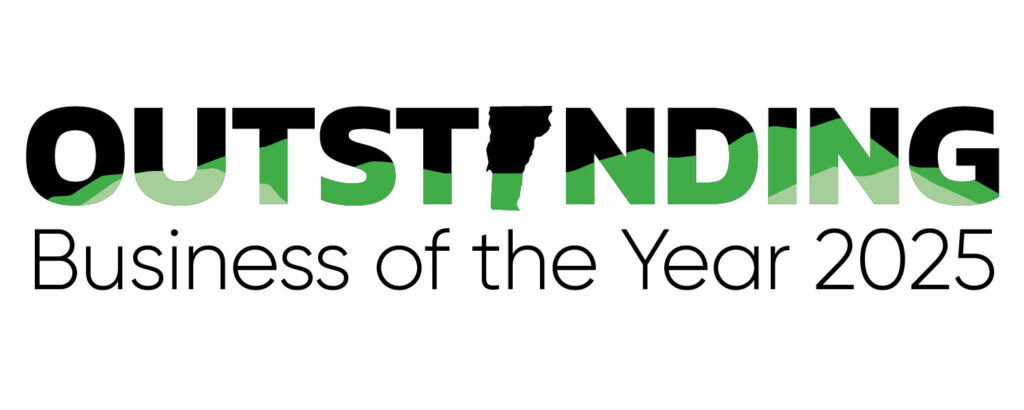This week’s tax hearings and briefings at the State House were largely foundational, but they set the stage for the most consequential fiscal debates of the session. With federal support uncertain, budget constraints tightening, and cost pressures continuing to build, lawmakers are beginning to confront a central reality. Without meaningful cost containment, tax policy will once again become the primary tool for closing budget gaps.
Several interconnected tax issues were discussed this week, including federal conformity, education finance, and Vermont’s existing tax structures. Together, they set the context for a session where fiscal discipline will determine whether Vermont strengthens affordability or compounds existing pressures. Data from the Vermont Competitiveness Dashboard shows that affordability pressures tied to taxes, housing, and workforce availability are already constraining business growth and labor force participation. How lawmakers respond this session will influence whether Vermont closes or widens those gaps relative to peer states.
Federal Tax Policy, Vermont Choices
This week’s joint hearing of House Ways and Means and Senate Finance focused on H.R.1 and the fiscal impacts of its tax provisions. Vermont conforms to the federal tax code selectively, not universally. Changes that affect the calculation of federal taxable income itself generally flow through unless Vermont explicitly decouples, while changes that occur below the line, create new deductions or credits outside taxable income, or are structured differently may not flow through at all without state action. Understanding how and where federal changes apply is central to the tax discussion this session, as lawmakers weigh affordability, predictability, and revenue impacts.
Fiscal analysts noted that accelerated deductions reduce near-term state revenue, prompting discussion about selective decoupling. Provisions such as research and development expensing, interest deductibility, and accelerated depreciation were highlighted because of their fiscal impact.
For businesses, the risk of focusing solely on short-term revenue is significant. Decoupling would raise the cost of investment, increase complexity, and weaken incentives for innovation and expansion at a time when employers are already facing higher interest rates, workforce shortages, and rising costs. Dashboard indicators show that states with stronger investment and productivity growth are better positioned to grow wages, retain workers, and stabilize tax bases over time.
Federal conformity provides predictability and aligns Vermont’s tax policy with national investment signals. Moving away from that alignment would introduce uncertainty and place Vermont at a competitive disadvantage. How lawmakers approach these decisions will be a defining test of whether tax policy this session supports affordability, predictability, and long-term economic growth.
Education Transformation and Vermont’s Tax Outlook
The Governor’s State of the State reinforced a central reality shaping Vermont’s tax outlook. Education spending remains the single largest driver of property tax pressure and broader affordability challenges. Education costs now exceed $2.5 billion annually, a sharp increase over the past decade, with current projections pointing to another significant rise next year. Education is funded not only through property taxes, but also through substantial diversions from sales, meals, rooms, and other taxes. As those costs grow, they increasingly limit the state’s ability to invest in housing, workforce development, infrastructure, and broad-based affordability.
This week also marked the start of formal legislative review of Act 73, the education transformation law passed last session. Committees focused on understanding the structure and fiscal mechanics of the new system, laying the groundwork for more substantive policy discussions in the weeks ahead. Act 73 represents a meaningful structural shift in education finance intended to improve equity and long-term sustainability. Whether it delivers on affordability will depend on disciplined implementation and sustained follow-through.
The December 1 letter provided the baseline for these discussions and formally begins the annual process of setting education property tax rates. While the letter is a forecast rather than a final decision, it shows continued upward pressure on property taxes driven by rising education spending and declining enrollment. For businesses, the key takeaway is that the Yield Bill is where forecasts become tax rates. Decisions about how costs are allocated, whether one-time funds are used, and how nonresidential taxpayers are treated will directly affect employers and shape predictability for the year ahead.
Short-term fixes and one-time funds may soften immediate impacts, but they do not change the underlying cost trajectory. That is why education transformation and cost containment are now central to every tax conversation at the State House and to Vermont’s long-term affordability and economic competitiveness.
The Bottom Line
This week made one thing clear. Vermont is entering a session where tax outcomes will be shaped less by new ideas and more by whether the state can control costs, align with federal policy, and avoid short-term decisions that undermine long-term stability. The Competitiveness Dashboard makes clear that Vermont’s economic challenges are interconnected, and this week’s hearings confirmed that tax policy sits at the center of those dynamics. The Vermont Chamber will continue to engage policymakers with data-informed analysis to ensure tax policy supports affordability, predictability, and a competitive environment for businesses across the state.
 Megan Sullivan
Megan Sullivan




